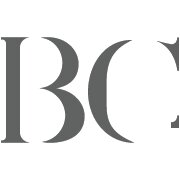Best Structured Finance Lawyers in Santo Domingo
Share your needs with us, get contacted by law firms.
Free. Takes 2 min.
List of the best lawyers in Santo Domingo, Dominican Republic
About Structured Finance Law in Santo Domingo, Dominican Republic
Structured finance is a sophisticated area of finance focused on supporting complex financial transactions that cannot be handled with standard lending solutions. In Santo Domingo, Dominican Republic, structured finance plays a key role in facilitating investments, supporting business growth, and enabling infrastructure development. It typically involves the use of securitization, project finance, syndicated loans, derivatives, collateralized debt obligations, and other financial instruments tailored to the needs of corporations, banks, and investors. The legal framework in Santo Domingo is geared towards fostering business opportunities while ensuring transparent, secure, and efficient transactions.
Why You May Need a Lawyer
Legal guidance is often essential when dealing with structured finance transactions due to their complexity and the significant risks involved. Common scenarios where a lawyer can provide invaluable assistance include:
- Structuring and negotiating loans, bond issuances, and other debt instruments
- Drafting, negotiating, and reviewing contracts and agreements
- Navigating regulatory requirements and compliance issues
- Conducting due diligence on assets or entities involved in securitization
- Resolving disputes, defaults, or claims among transaction parties
- Advising on tax implications and structuring the most efficient deal
- Assisting with cross-border transactions and international investments
- Ensuring compliance with Anti-Money Laundering (AML) and Know Your Customer (KYC) standards
Given the potential financial and legal consequences, partnering with a knowledgeable attorney helps protect your interests and ensures deals are carried out lawfully and efficiently.
Local Laws Overview
Structured finance in Santo Domingo operates within a developing yet robust legal framework. Key aspects of local laws relevant to structured finance include:
- Securities Regulation: The Superintendencia del Mercado de Valores (SIV) regulates securities offerings and market conduct, enforcing requirements for public and private issuances, disclosures, and reporting.
- Banking Legislation: The Monetary and Financial Law oversees banking activities, loan syndication, and project finance initiatives, administered primarily by the Central Bank of the Dominican Republic and the Superintendency of Banks.
- Contract Law: Dominican contract law provides the foundation for drafting and enforcing agreements related to structured finance, emphasizing mutual consent, clarity, and enforceability.
- Insolvency and Bankruptcy: The new insolvency law (Ley de Reestructuración y Liquidación de Empresas y Personas Físicas Comerciantes) provides processes for reorganization and liquidation, affecting creditors and security interests in structured finance deals.
- Tax Considerations: Transactions may be subject to withholding, capital gains, or other taxes. It is important to structure deals with local tax laws in mind to achieve the most efficient outcomes.
- Foreign Investment: The law encourages foreign investment, providing protections and incentives but imposing certain reporting and compliance obligations for international transactions.
Legal professionals specializing in structured finance can clarify how these laws may affect your specific situation and help guide you through legal and regulatory pitfalls.
Frequently Asked Questions
What is structured finance?
Structured finance refers to complex financial arrangements, such as securitizations, project finance, and syndicated loans, that are crafted to address unique and significant financing needs which traditional financing cannot cover.
Who regulates structured finance transactions in Santo Domingo?
The Superintendency of the Securities Market (SIV), the Central Bank of the Dominican Republic, and the Superintendency of Banks are the main regulators overseeing structured finance, securities, and lending markets.
Are there restrictions on who can participate in structured finance deals?
Yes, only qualified or eligible investors, corporations, and financial institutions are typically permitted to participate, and all must comply with local regulations regarding licensing, registration, and disclosure.
What documentation is required in a structured finance transaction?
Key documents include loan or credit agreements, security agreements, offering memoranda, trust deeds, and legal opinions. Each transaction may require additional documents based on its complexity.
How do Dominican insolvency laws affect structured finance deals?
If a debtor becomes insolvent, creditors’ rights and priorities are determined by local insolvency law, which can affect how and when investors or lenders recover their investments.
Can foreign investors participate in structured finance arrangements?
Yes, foreign participation is allowed and even encouraged, but international parties must abide by local laws, currency controls, and specific reporting requirements.
Are there specific taxes applicable to structured finance in Santo Domingo?
Depending on the nature and parties to a transaction, taxes such as withholding tax, capital gains tax, or transfer taxes may apply. Tax structuring is essential in these transactions.
What are the risks involved in structured finance transactions in the Dominican Republic?
Risks include credit risk, market risk, legal and regulatory risk, tax risk, currency risk, and operational risks associated with the underlying assets or borrowers.
What role does due diligence play in structured finance?
Thorough due diligence is critical to assess the value, legal standing, and risks of the underlying assets, as well as the creditworthiness of the participants. It helps avoid future disputes and losses.
How can legal counsel assist in structured finance?
Legal counsel provides expert guidance on deal structuring, compliance, negotiation, documentation, due diligence, dispute resolution, and regulatory liaison to ensure smooth, lawful transactions.
Additional Resources
If you want to learn more or need guidance, consider reaching out to the following resources:
- Superintendencia del Mercado de Valores (SIV): The Dominican authority for securities and structured finance regulation
- Superintendencia de Bancos: Oversees banking, lending, and financial market conduct
- Central Bank of the Dominican Republic: Financial system regulator providing economic and monetary policy guidance
- Dominican Bar Association: Provides directories and referrals for specialized legal advisors
- Ministry of Finance: Information about taxes and fiscal policies impacting financial transactions
- Private law firms: Many law firms in Santo Domingo specialize in financial law and can offer tailored support
Next Steps
If you are considering a structured finance transaction or require legal advice in Santo Domingo, Dominican Republic, here is how you can proceed:
- Assess your objectives and gather basic information about your transaction or issue
- Identify and engage a qualified attorney or law firm experienced in structured finance law
- Prepare relevant documents and details about your business, assets, and partners
- Discuss your needs, goals, and concerns with your legal advisor to determine the best approach
- Work with your lawyer to navigate regulatory filings, conduct due diligence, and structure the transaction
- Ensure full compliance with local laws, including tax, securities, and banking regulations
- Stay in close contact with your advisors to address any legal issues that may arise during or after the transaction
Seeking professional legal advice is crucial for success in structured finance. By following these steps, you can confidently pursue opportunities while minimizing risks in the dynamic financial landscape of Santo Domingo, Dominican Republic.
Lawzana helps you find the best lawyers and law firms in Santo Domingo through a curated and pre-screened list of qualified legal professionals. Our platform offers rankings and detailed profiles of attorneys and law firms, allowing you to compare based on practice areas, including Structured Finance, experience, and client feedback.
Each profile includes a description of the firm's areas of practice, client reviews, team members and partners, year of establishment, spoken languages, office locations, contact information, social media presence, and any published articles or resources. Most firms on our platform speak English and are experienced in both local and international legal matters.
Get a quote from top-rated law firms in Santo Domingo, Dominican Republic — quickly, securely, and without unnecessary hassle.
Disclaimer:
The information provided on this page is for general informational purposes only and does not constitute legal advice. While we strive to ensure the accuracy and relevance of the content, legal information may change over time, and interpretations of the law can vary. You should always consult with a qualified legal professional for advice specific to your situation.
We disclaim all liability for actions taken or not taken based on the content of this page. If you believe any information is incorrect or outdated, please contact us, and we will review and update it where appropriate.













